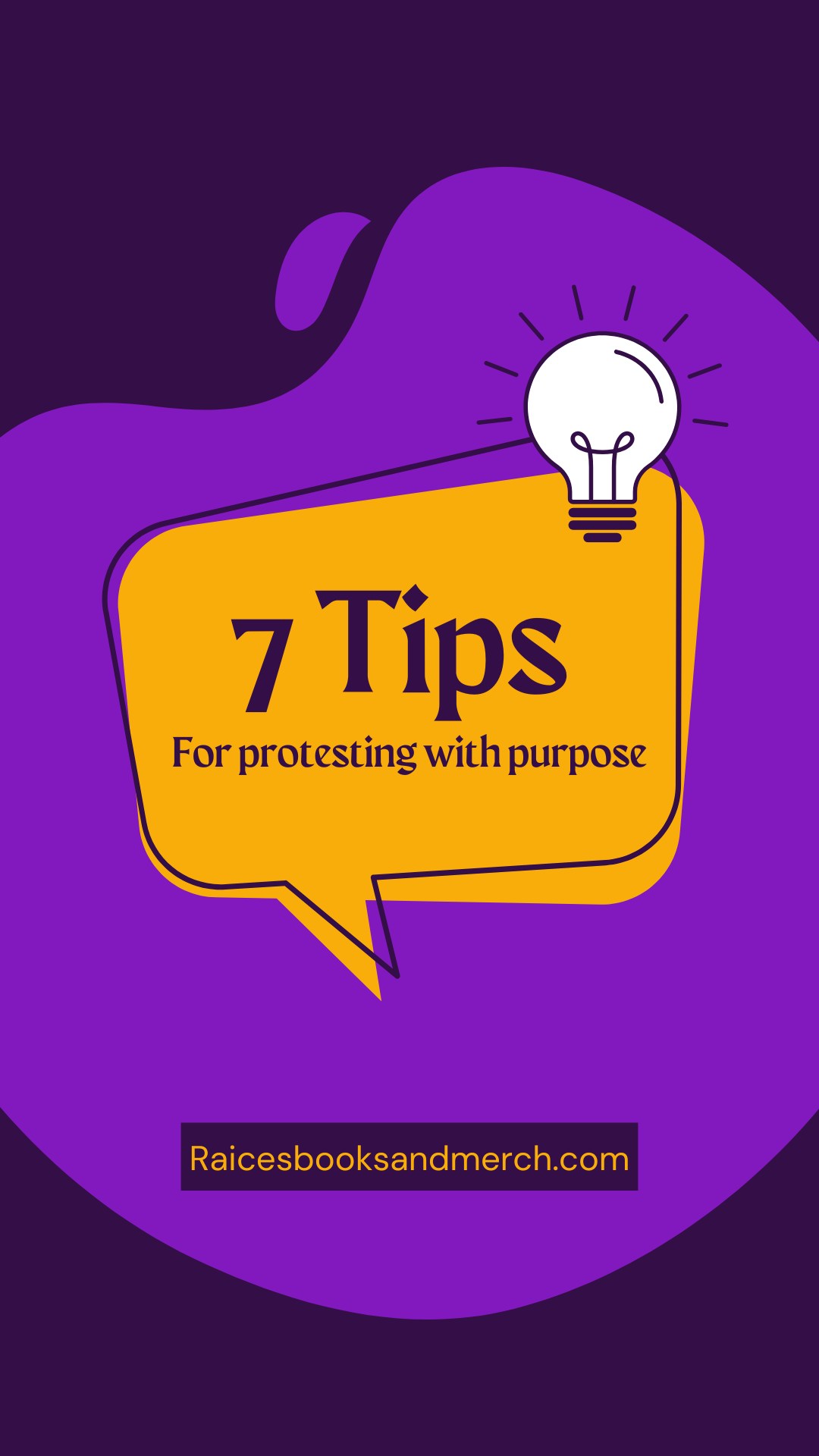
7 Tips for Protesting with Purpose and Protection
Share
For those out in the streets, raising your voice—this is for you.
At Raíces, we believe that storytelling is powerful—and so is protest. Whether you're marching for Black lives, immigrant rights, queer liberation, reproductive justice, or all of the above, your presence matters. Your voice matters. And your safety matters too.
Here are some tips to help you stay safe, grounded, and prepared when protesting:
1. Know Why You're Showing Up
Protest with intention. Know the cause, the organizers (if possible), and the demands being made. Whether you’re attending solo or with a group, grounding yourself in purpose helps center your energy and keeps you focused.
2. Pack Smart
Bring:
-
Water (stay hydrated!)
-
Snacks (like granola bars or fruit)
-
A face mask (for anonymity and health)
-
Cash (in case cards don’t work or are lost)
-
ID (if you feel safe carrying it)
-
A small first aid kit
-
Emergency contact info written on paper or your body (not just your phone)
-
Extra charger or battery pack
Avoid: anything that can be labeled as a weapon (e.g., pocket knives, metal water bottles if police presence is heavy)
3. Dress for Safety and Anonymity
-
Wear comfortable, neutral-colored clothes and shoes you can walk in for hours.
-
Avoid logos, bright colors, or clothing that stands out.
-
Tie back your hair and avoid wearing jewelry that could get caught or identified.
-
Cover any identifying marks—such as tattoos, birthmarks, or scars—with clothing, bandages, or makeup if anonymity is important to you.
-
Bring goggles or glasses to protect your eyes from tear gas or pepper spray.
4. Go with a Buddy (or Group)
Protest with trusted people when you can. Set check-in times, share your locations if possible, and establish a meetup spot in case you get separated.
5. Know Your Rights
You have the right to:
-
Peacefully assemble
-
Record public officials in public spaces
-
Remain silent if detained
If stopped, calmly ask, “Am I free to go?” If not, you are being detained—don’t resist, but ask to speak to a lawyer. Don’t unlock your phone for police; you are not required to.
6. Stay Aware
Be alert. Know your exits and stay close to groups. Watch for agitators or people escalating violence. Trust your instincts—if something doesn’t feel right, move.
7. Care for Your Mental Health
Protesting is emotional labor. You might feel rage, grief, power, and fatigue—sometimes all at once. Breathe. Journal. Talk to someone you trust. Healing is part of the resistance, too.
Final Thoughts:
Protesting is powerful. It’s an act of courage, community, and collective love. If you’re showing up, know that you’re part of something bigger than yourself. Prepare wisely. Protect yourself and others. And remember: you are not alone.
Con fuerza y cuidado,
Flor E. Carabez
Raíces
